JULY GARDEN TIPS
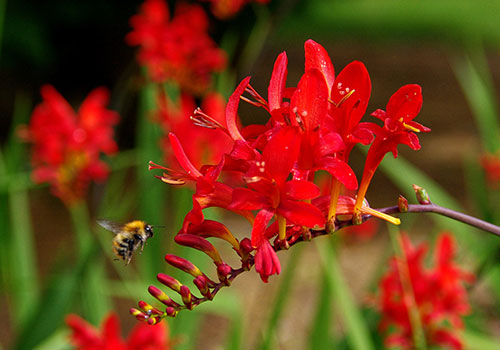
General Gardening
Remember that the Seattle area may go several months in the summer without significant rainfall (and that a few drops that wet the surface don’t really count). Even if the weather is cloudy, plants will still need water.
Mulch to conserve soil moisture; use drip irrigation, soaker hoses, and tree/shrub watering bags. Also, keep weeds pulled—weeds suck up water your plants need.
Click for a list of drought tolerant plants.
Birds and beneficial insects may also start hurting for water. Consider installing a birdbath or water bowl. If yours does not have ornamentation that breaks the surface, putting in decorative pebbles as mini “islands” will make it more useful for butterflies and bees.
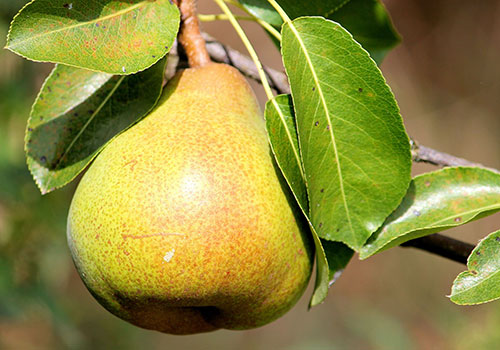
Fruits & Berries
Fruit trees and berries need regular water to bear and ripen their fruit properly. Drought can cause fruit drop or malformation. Watering bags, soaker hoses or drip systems are great choices; overhead watering can spread disease spores and split fruit like cherries.
Monitor fruit trees and berries for insect and disease problems; consult a Sky Nursery associate for recommendations if you spot an issue.
Net cherry trees and blueberry bushes to protect your harvest.
Time for summer pruning! Cherries and apricots: prune in July when no rain is expected. Most other fruit trees will benefit from a thinning of shoots and the removal of any waterspouts or suckers. Prune to improve air circulation and sunlight penetration. Summer is also the time to prune if you’re trying to keep your tree smaller.
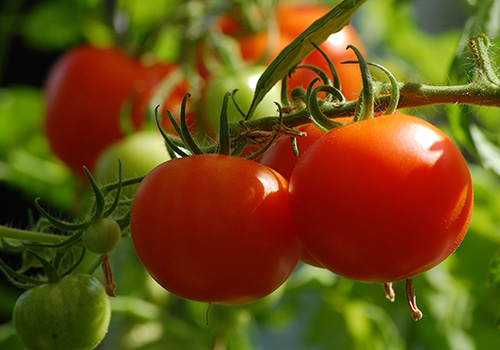
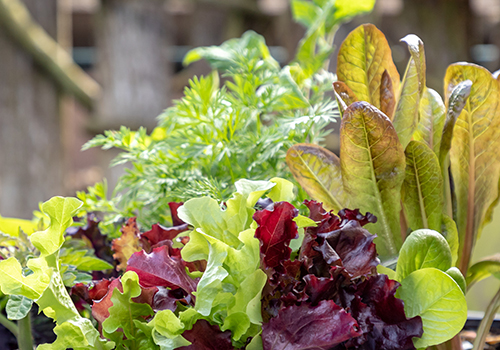
Vegetables & Herb
Water and fertilize your heat loving vegetables (tomatoes, pepper, cucumbers & squash) and fertilize weekly with a good liquid organic fertilizer.
Water and shade your cool season vegetables: leafy greens, radishes, beets, etc.
Protect tomatoes from blossom-end rot and cracking by keeping the soil evenly moist. If you did not use garden lime in your tomato beds/pots in the spring, apply foliar calcium spray or liquid calcium soil drench now.
Start fall and winter vegetables
Sow seeds for: beets, broccoli, Leafy greens, cabbage, carrots, cauliflower, daikon, onions, and turnips. Learn more about winter vegetable gardening.
You can still plant heat-loving vegetables such as cucumbers, squash, and early-ripening tomatoes and peppers into early July. Annuals herbs such as basil and cilantro can be planted throughout the month. Perennial herbs such as bay, rosemary, and thyme can be planted any time of year. Newly-planted transplants may need protection from the sun at first and extra water while they are getting established.
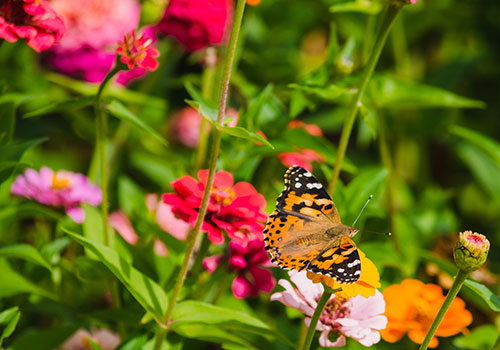
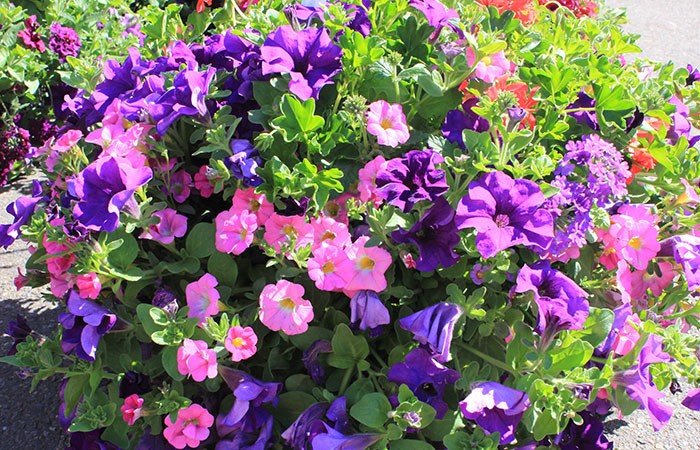
Ornamental Gardening
Water trees, shrubs, and perennials deeply once a week rather than watering shallowly every day. this helps plants develop deeper root systems that will be more tolerant of drought. (New plantings will need extra water for the first one to two years to become established.)
Fertilize annuals regularly and deadhead spent flowers to encourage continued bloom.
Groom and fertilize perennials and watch for insect damage.
Containers & Hanging Baskets
Water! Remember that a container can dry out in less than a day in hot or windy weather.
Fertilize heavy blooming annuals in containers or baskets every two weeks. Deadhead regularly to encourage continued bloom.
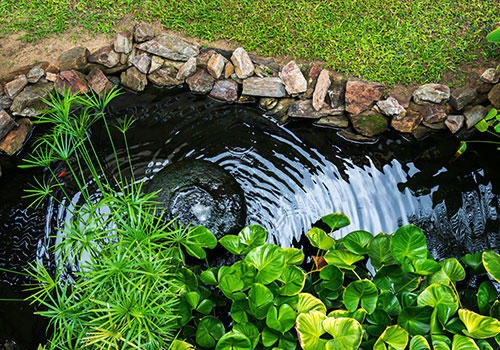
Water Features
Feed both plants and fish. Give fish smaller amounts of good summer fish food several times a day rather than all at one time. Each time, give enough food for your fish to finish in about five minutes. Feed your pond plants with aquatic plant food tablets; water lilies in particular should be fed once a month, other water plants every 4-6 weeks. Keeping debris skimmed from your pond will help to reduce algae. Check your filter pads and clean them gently with pond water when necessary.
Don’t breed mosquitoes! If you have any still or standing water, Sky carries organic Bt-based mosquito dunks and bits that are completely safe for birds, fish, pets, and wildlife. (They are even safe for insects other than mosquitoes.)

Lawn Care
If you let your grass go dormant for the summer, leave your lawn alone as much as possible until fall rains green it up again. Do not mow or treat for weeds; walk on it as little as possible.
If you are keeping your lawn watered through the summer, reduce your water needs by setting your mowing height higher and by grasscycling (leaving the clippings on the lawn). Topdressing your lawn with compost can also promote deeper root growth and increased drought resistance. Wait to fertilize till fall rains begin.
If weeds are a problem, try pulling or spot-treating. A well-fed lawn can outgrow most weed problems.
